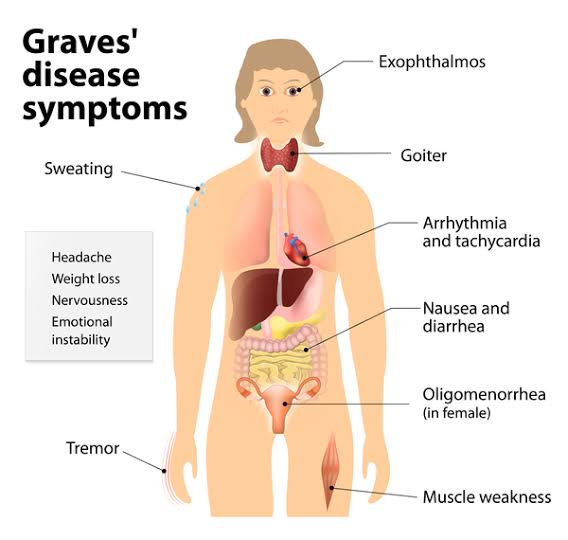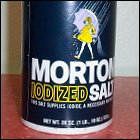
DISEASES OF THYROID
Thyroid Disease States
Disease is associated with both inadequate production and overproduction of thyroid hormones. Both types of disease are relatively common afflictions of man and animals.
Hypothyroidism is the result from any condition that results in thyroid hormone deficiency. Two well-known examples include:

- Iodine deficiency: Iodide is absolutely necessary for production of thyroid hormones; without adequate iodine intake, thyroid hormones cannot be synthesized. Historically, this problem was seen particularly in areas with iodine-deficient soils, and frank iodine deficiency has been virtually eliminated by iodine supplementation of salt.
- Primary thyroid disease: Inflammatory diseases of the thyroid that destroy parts of the gland are clearly an important cause of hypothyroidism.
Common symptoms of hypothyroidism arising after early childhood include lethargy, fatigue, cold-intolerance, weakness, hair loss and reproductive failure. If these signs are severe, the clinical condition is called myxedema. In the case of iodide deficiency, the thyroid becomes inordinantly large and is called a goiter.
The most severe and devestating form of hypothyroidism is seen in young children with congenital thyroid deficiency. If that condition is not corrected by supplemental therapy soon after birth, the child will suffer from cretinism, a form of irreversible growth and mental retardation.
Most cases of hypothyroidism are readily treated by oral administration of synthetic thyroid hormone. In times past, consumption of dessicated animal thyroid gland was used for the same purpose.
Hyperthyroidism results from secretion of thyroid hormones. In most species, this condition is less common than hypothyroidism. In humans the most common form of hyperthyroidism is Graves disease, an immune disease in which autoantibodies bind to and activate the thyroid-stimulating hormone receptor, leading to continual stimulation of thyroid hormone synthesis. Another interesting, but rare cause of hyperthyroidism is so-called hamburger thyrotoxicosis.
Common signs of hyperthyroidism are basically the opposite of those seen in hypothyroidism, and include nervousness, insomnia, high heart rate, eye disease and anxiety. Graves disease is commonly treated with anti-thyroid drugs (e.g. propylthiourea, methimazole), which suppress synthesis of thyroid hormones primarily by interfering with iodination of thyroglobulin by thyroid peroxidase.
By the end of this lesson, students should learn about
- Graves disease
- symptoms of hyperthyroidism
- hypothyroidism
- cretinism


